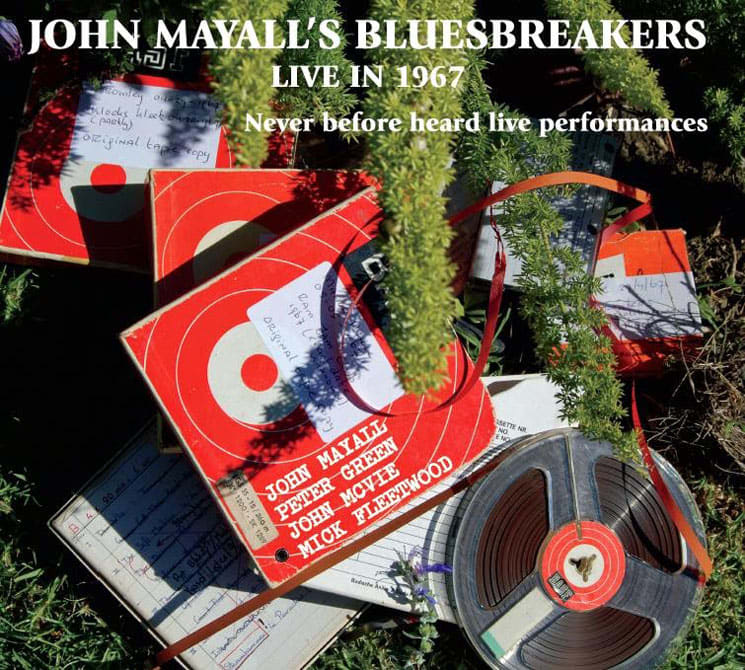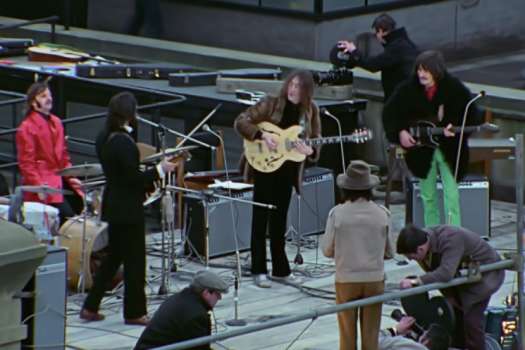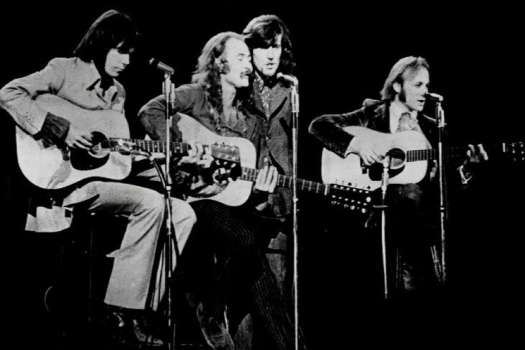John Mayall has deservedly been termed the Godfather of British Blues, based on the fact that the '60s versions of his ever-changing band the Bluesbreakers helped launch the careers of the pioneering stars of the British blues-rock explosion of that decade. That star-studded list includes Eric Clapton, Jack Bruce, Andy Fraser (Free) and Mick Taylor.
Back in 1967, for a mere three months, John Mayall's Bluesbreakers comprised singer/keyboardist Mayall, guitarist Peter Green, bassist John McVie and drummer Mick Fleetwood. This lineup never recorded an official album, and the latter three players soon split to form Fleetwood Mac. They did, however, gig around London clubs, and five such shows were captured by Dutch fan Tom Huissen on a one-channel, reel-to-reel tape recorder. These tapes were recently cleaned up as much as possible, resulting in Live in 1967. The result works best as a fascinating artefact of music history, rather than a fully satisfying album. As the album liner notes concede, "The final result is certainly not hi-fidelity." Still, the spirited playing of the band does shine through, especially Green's fluent work. Mayall's laid-back vocals, harmonica and keyboards add resonance to the sound, while his two original tunes here, "Brand New Start" and "Streamline," show his undervalued talent as a writer.
Two key inspirations on Mayall, Freddie King and Otis Rush, are represented here via multiple covers of their songs (including classics "Double Trouble" and "The Stumble"), while Willie Dixon favourite "I Can't Quit You Baby" is a highlight. Some of these songs appeared on earlier and later Mayall albums, while others appear here for the first and last time on record, making the collection a must for Mayall completists. Five of the tracks stretch seven minutes or more, allowing the players room to move, to quote one of Mayall's own songs. The lo-fi sound of these recordings can be frustrating, but the result is much closer to the essence of the blues than the polished sterility of so many of today's blues-rock stars.
(Forty Below Records)Back in 1967, for a mere three months, John Mayall's Bluesbreakers comprised singer/keyboardist Mayall, guitarist Peter Green, bassist John McVie and drummer Mick Fleetwood. This lineup never recorded an official album, and the latter three players soon split to form Fleetwood Mac. They did, however, gig around London clubs, and five such shows were captured by Dutch fan Tom Huissen on a one-channel, reel-to-reel tape recorder. These tapes were recently cleaned up as much as possible, resulting in Live in 1967. The result works best as a fascinating artefact of music history, rather than a fully satisfying album. As the album liner notes concede, "The final result is certainly not hi-fidelity." Still, the spirited playing of the band does shine through, especially Green's fluent work. Mayall's laid-back vocals, harmonica and keyboards add resonance to the sound, while his two original tunes here, "Brand New Start" and "Streamline," show his undervalued talent as a writer.
Two key inspirations on Mayall, Freddie King and Otis Rush, are represented here via multiple covers of their songs (including classics "Double Trouble" and "The Stumble"), while Willie Dixon favourite "I Can't Quit You Baby" is a highlight. Some of these songs appeared on earlier and later Mayall albums, while others appear here for the first and last time on record, making the collection a must for Mayall completists. Five of the tracks stretch seven minutes or more, allowing the players room to move, to quote one of Mayall's own songs. The lo-fi sound of these recordings can be frustrating, but the result is much closer to the essence of the blues than the polished sterility of so many of today's blues-rock stars.




